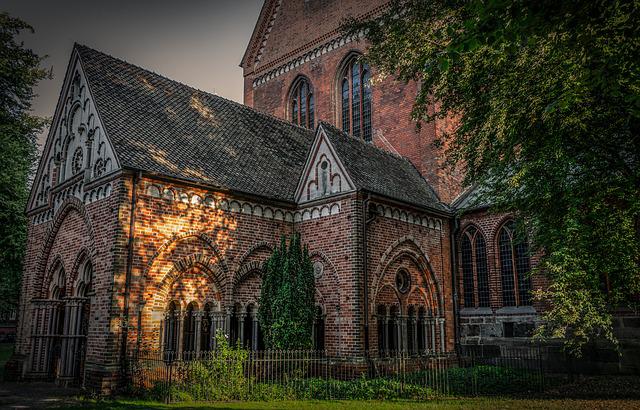
More Free Educational Resources for Nonprofits
07.08.2025 | Linda J. Rosenthal, JD

On June 26, 2017, the United States Supreme Court issued what has been described as “one of the most important rulings on religious rights in decades.”
In Trinity Lutheran Church of Columbia v. Comer, Chief Justice John Roberts explains that the Free Exercise Clause of the First Amendment “…protects religious observers against unequal treatment.” The government “may not deny a church an otherwise available public benefit or payment because of its religious status.”
Trinity Lutheran Church operated a preschool and daycare center on its property. In 2012, it applied for a Missouri program offering financial assistance to install safer playground surfaces for facilities with young children. Although Trinity Lutheran ranked 5th out of 44 applicants, its request was denied.
The Missouri Department of Natural Resources “had a strict and express policy of denying grants to any applicant owned or controlled by a church, sect, or other religious entity.” Specifically, Article I, Section 7 of the Missouri Constitution prohibits providing “financial assistance directly to a church.” Many other states have similar constitutional prohibitions on direct financial aid to a church.
The Church decided to fight this policy, filing a federal lawsuit on constitutional grounds. We previously reported on the legal journey to eventual victory in the Supreme Court.
More often than not, … First Amendment lawsuits are marked by a tug-of-war between [the Establishment Clause and the Free Exercise Clause]. Over decades, the pendulum tends to swing back and forth; during some periods, there is more activity in connection with the Establishment Clause; in others – including right now – there is more focus on claims of violation of the Free Exercise Clause.
In this case, the Free Exercise Clause argument won out in the Supreme Court, although both of the lower courts ruled against Trinity Lutheran Church. The Supreme Court’s ruling elicited significant opposition and controversy, but there has been little doubt that it will have a dramatic effect on pending and future cases.
Two recent lower-court decisions confirm this prediction that Trinity Lutheran will pop up regularly – even if unsuccessfully, from the standpoint of these plaintiffs.
In a case with some similarities to the fact pattern of Trinity Lutheran, the Vermont Supreme Court in Taylor v. Town of Cabot (October 2017) issued a ruling that referenced the U.S. Supreme Court religion decision.
There, certain municipal taxpayers sued to challenge a town’s use of federally derived but municipally managed funds to repair a historic church. Vermont has a Compelled Support Clause in its Constitution – similar to Missouri’s – which protects against the state financial support of “worship.”
A particular twist here meant the taxpayer-plaintiffs won a battle but lost the war. The Vermont high court ruled that the taxpayer-plaintiffs were not entitled to the preliminary injunction imposed by the trial judge. While they had standing to request that relief, they were out of luck on ultimately winning the merits of the case.
Vermont’s Compelled Support Clause did not apply because most of the state funds in this situation were “to be used for maintenance and repairs to a building that serves not only as a place of worship but also as a place for nonsectarian community events and gatherings.” And the federal First Amendment, under the Trinity Lutheran rationale, can now not be used to refuse access by religious organizations (solely on account of their religious affiliations) to government money otherwise generally available.
A second case in which the plaintiff sought to use Trinity Lutheran to its advantage had quite different facts.
In Illinois Bible Colleges Ass’n v. Anderson (August 2017), an association of bible colleges unsuccessfully sued on behalf of its member institutions who want to issue whatever degrees and credentials they wish without any supervision or interference by state agencies imposing statutory standards. However, Illinois has a number of statutes that apply to all post-secondary educational institutions that mandate that a higher education board approve certain categories of degrees.
The plaintiff raised the entire spectrum of First Amendment challenges, including the Establishment Clause and the Free Exercise Clause.
On appeal to the Seventh Circuit, the plaintiff was also unsuccessful. There was no undue government entanglement; hence, no defense under the Establishment Clause.
And citing to Trinity Lutheran and other authority made no headway in the argument that the statutes involve an underlying and unconstitutional anti-religious animus or bias. [“T]he Supreme Court recently made clear in Trinity Lutheran Church a law may not ‘regulate or outlaw conduct because it is religiously motivated’; here, however, there was no such showing at all.”]
We can expect to see many court decisions exploring the implications and boundaries of the Trinity Lutheran case.
It may or may not turn out – as Trinity Lutheran critics charged – that the “Supreme Court weaken[ed] the wall between church and state,” or “obliterate[d] it” or that “[s]omewhere, James Madison is shaking his head in disbelief.”
– Linda J. Rosenthal, J.D., FPLG Information & Research Director
